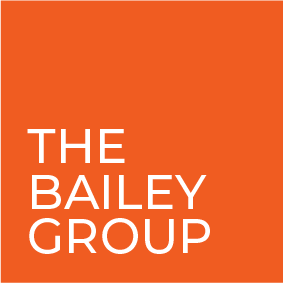
Are You a Leader Who Seeks Feedback as a Habit?
I recently facilitated a workshop for a leadership cohort with one of our clients about giving and receiving feedback. It caused me to think about the last time I sought out feedback from one of my colleagues or clients. And it was a good reminder to incorporate discussions about seeking feedback with the leaders I coach.
When you hear the word feedback, how do you feel? Be honest. Most of us cringe. In the traditional corporate setting, managers dread the annual performance review process, where formal feedback is typically given. Employees hate the process for different reasons, so when both sides feel hesitation and discomfort it generally creates an emotionally fraught environment. In fact, feedback is widely referenced as one of the most difficult conversations we have, particularly in an employment context. When surveyed on this topic, 63% of executives indicate the biggest challenge to effective performance management in their organizations is that managers lack the courage and ability to have difficult feedback conversations. On the other side of the coin, over half of employees surveyed say their performance review was unfair or inaccurate, and one in four employees dreads the performance review more than anything else at work.
Seems like an area ripe for positive change in the workplace, doesn't it? How can we get better at giving and receiving feedback to make our workplaces more positive and productive?
As humans we generally love to learn, but it's hard to learn about ourselves, especially if we perceive the feedback as negative. The reason is that we also have a fundamental need for acceptance, and if we hear criticism, we fear we are not being accepted. At all stages of a leader's career, especially at the top of an organization where honest feedback can be rare, it's important to have self-awareness around how you personally feel and handle this conflict.
Let's say you have been promoted recently to a leadership role with greater span of control. Within the first few months, you hear from your leader that they are concerned that you're continuing to work as if you were in your prior role and failing to delegate appropriately. It's a natural human reaction to think, "oh no, she doesn't think I'm up for this role/she's having second thoughts." But it's important to recognize that instinctive, human reaction for what it is and move past it quickly to appreciate the feedback and use it productively to improve. In this example, the feedback is directed at the leader can immediately change. They can review their schedule for the upcoming week or two and determine what meetings or tasks they can hand off to others, and free up their time for more strategic work in the new role.
Seeking Out Meaningful Feedback
When you are aware of your reaction to feedback and work on making a habit of incorporating worthwhile feedback to improve, it becomes easier. Proactively seeking out feedback is a key indication of a continuous learning mindset, which is a wonderful leadership quality. Seeking feedback has also been linked to greater job satisfaction, greater creativity, and faster adaptation on the job.
If you're like me, you take your effectiveness as a leader very seriously, and affirmation is important to you. It's wonderful to hear positive feedback. Just make sure when seeking out feedback you are balancing that need for support and encouragement with the need to learn about your areas of opportunity to improve. In their excellent book on the topic, Thanks for the Feedback, Douglas Stone and Sheila Heen distinguish the role of "honest mirrors" versus "supportive mirrors" in your life, and the importance of having both. If you're receiving praise in a new role but haven't heard anything that indicates where you have an opportunity to grow, ask specifically for those insights or consider asking different sources who might provide the more honest mirror.
Along those lines, it's also important to seek out feedback from more "difficult" sources. This could be a colleagues with whom you're not especially close or with whom you've had conflict in the past. These are the people who will have no qualms about giving it to you straight, because they're not afraid to offend you. Those who aren't in your close circle of confidants also see you speak or act in your worst moments, particularly in times of stress or conflict, when we tend to go into "fight or flight" mode and lose our ability to listen carefully and discern. Remember that in seeking out feedback, it doesn't always mean that you have to accept the feedback. If you feel that feedback you've received is way off base, you can always check with others and dismiss it if it's not valid.
Blind Spots and Intent vs. Impact
For leaders in a new role who are committed to learning quickly and growing both professionally and personally, it's also important to understand what prevents you from really hearing feedback. The fundamental truth at play here is that we judge ourselves by our intentions, while others judge us by our impact. The best example I can think of is a parent talking with their teenager: you are trying to have a conversation they don't want to have, and they snap at you. Your reaction: "don't talk to me so disrespectfully." Their response: "I wasn't being disrespectful." Both parent and child are right in their own minds; the teen was sending a signal they didn't want to talk (intent), and the parent felt disrespect (impact) that wasn't necessarily intended.
How does intent versus impact play out in the workplace? Let's say as a new divisional leader, you institute a new policy to improve culture. Your team feels like it's just more work and surveillance, creating lack of trust. Your intent was to improve the workplace for your team, but the impact was a decrease in morale.
If you don't feel self-awareness is a leadership strength for you, executive coaching is one great way to work on this skill and become more aware of how others perceive you and your behavior. Seeking out feedback will help you become more self-aware and avoid potential blind spots. When you have a conversation that seems to have gone off the rails, or there's been a miscommunication between you and others at work, here's a framework to reflect and help resolve:
My thoughts/feelings (my story) my intentions my behavior my impact on others others' stories about me
I often have conversations with my clients about feedback on written communication. It's easy to think of an example of how intent versus impact comes into play with email communications. The best approach is to give yourself some time and space before reacting, consider the author's intent and alternatives to the scenario you've created in your head. Sometimes, the best approach is to simply pick up the phone or stop by the person's office to clarify and resolve.
Overall, the best approach to becoming more aware of your blind spots and taking feedback constructively is to accept that you make mistakes and have likely contributed to a miscommunication or problem. Incorporate any feedback and demonstrate a different approach the next time. And to avoid getting too discouraged by setbacks or failures that lead to critical feedback, remember that with each "failure" you are growing and improving.
Practical Tips for Seeking Out Feedback
Now that we've set the stage for why feedback so important, how do we ask for it effectively? Here are some tips:
- Don't overwhelm the person you're seeking feedback from; focus on the most important or impactful points (instead of "how can I do better," ask "do you have any tips for how I can make my points more concise?")
- Listen for common themes – when more than one person gives the same feedback, it's likely important
- Don't overdo your feedback requests and acknowledge that the giver is being generous with their time and attention
- Be creative about whose feedback you're seeking (perhaps others in your intern or new hire class? Folks who have seen your work but not been directly involved?)
One final important tip about seeking out and incorporating feedback – the relationships you are building in your new role are critical to your reputation and your ultimate success. If you are consistently respectful and mindful of those relationships, you'll be setting a solid foundation for success.




